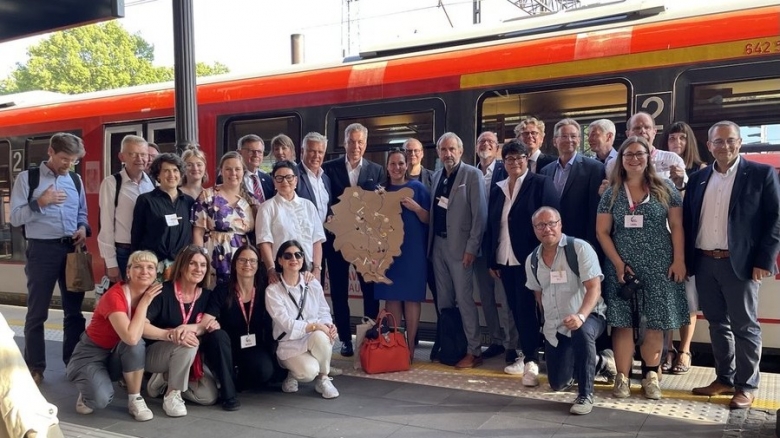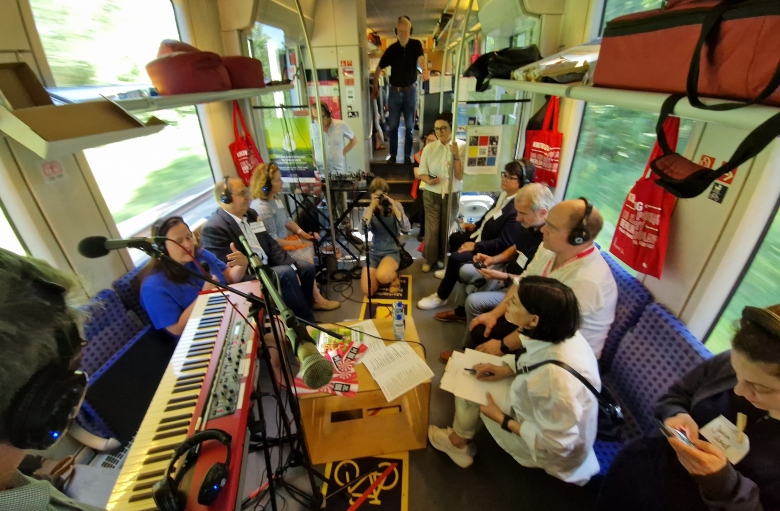Europa Nostra takes part in the “cultural train” joint initiative in the Lausitz region
On 7 July, Europa Nostra’s Executive President Hermann Parzinger and Vice-President Petr Svoboda took the cultural train from Berlin to Weglienic and Cottbus, the largest city of Lusatia. The three-hour cross-border cultural tour was organised under the motto “What connects us? Regions make Europe!” by the state of Brandenburg in cooperation with Europa Nostra Germany and its President Uwe Koch. On this occasion, the representatives from Europa Nostra had the opportunity to discuss the potentials of the cross-border region of Lusatia to become a dynamic European cultural region together with the Minister of Culture of the state of Brandenburg, Manja Schüle, the Chair of the CULT Committee of the European Parliament, Sabine Verheyen, and other representatives of cultural and civil society institutions.

Photo: Courtesy of Europa Nostra Germany
Europa Nostra’s Executive President Hermann Parzinger expressed his enthusiasm for the cross-border culture tour: “Lausitz is one of the core regions of Europe, making it stronger by bridging border regions. Lausitz and its neighbouring regions of Poland and Czech Republic have a common history and heritage since prehistory and reaching modernity; parks and gardens, Bauhaus monuments, industrial heritage and others. The “Kulturzug” is an initiative to make this heritage work for developing our future. It is important that Europa Nostra is engaged in this important project with closer cooperation between our country representations from Germany, Poland and Czech Republic”.

Photo: Courtesy of Europa Nostra Germany
Brandenburg’s Minister of Culture, Dr Manja Schüle, stated: “Culture plays a central role in times of transformation – because it tells stories about belonging, because it brings people together and into exchange. Culture is the key to strengthening regional identity, tapping into new employment potential, developing charisma for Lusatia. Lusatia in the border triangle has always been characterised by diversity, exchange and change. That is why it is also one of the most exciting European cultural landscapes. And that is also why it has the potential to become the European Capital of Culture as a region of change and at the interface between Western and Eastern Europe.”
The cultural train journey is intended to connect not only places, but also European neighbours, with a focus on Lusatia. During the three-hour journey, the potential of Lusatia as a common cultural space was explored in discussions and workshops. The focus was on defining what a region needs to become a European cultural region. The Sorbian singer-songwriter duo ‘Berlinska Droha’ provided the musical framework for this inspiring journey.






